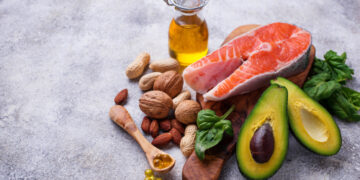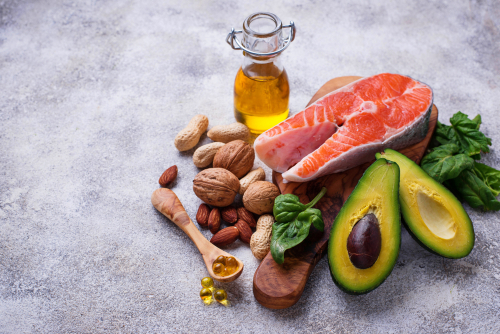Fat Isn’t the Enemy—It’s Essential
For years, fat got a bad reputation. Entire aisles of the grocery store filled with “low-fat” everything, promising health through subtraction. But the science tells a different story—one where fat isn’t just safe, it’s necessary. The right kinds of fat support heart health, brain function, hormone production, nutrient absorption, and long-lasting energy.
Healthy fats, especially monounsaturated and polyunsaturated types, are powerful allies in a whole-foods lifestyle. Understanding where they come from and how to use them can transform not just how your meals taste, but how you feel throughout the day.
Ad Banner #1
Placeholder for the first ad.
The Good Fats: What They Are and Why They Matter
Not all fats are created equal. While trans fats and highly processed oils deserve caution, monounsaturated and polyunsaturated fats are a different story—they’re the kind that help the body function at its best.
Monounsaturated fats are found in ingredients like avocados, olives, nuts, and seeds. They support cardiovascular health by helping lower LDL (bad) cholesterol without reducing HDL (good) cholesterol. They’re also anti-inflammatory, which can ease everything from joint stiffness to skin irritation.
Polyunsaturated fats, which include omega-3 and omega-6 fatty acids, go a step further. Omega-3s, in particular, are essential fats the body can’t produce on its own. They help regulate inflammation, support brain health, and keep the heart in balance. These fats are found in flaxseeds, chia seeds, walnuts, and certain oils like flaxseed or hemp oil.
Including a mix of both fat types creates a foundation for steady energy, vibrant skin, and long-term vitality—without the crash that often follows carb-heavy meals with little nutrient density.
Avocados, Nuts, and Seeds: Everyday Fat Superstars
Let’s talk about the go-to ingredients that deliver healthy fats in the most delicious ways.
-
Avocados are rich in monounsaturated fat and fiber, making them a double-win for heart and digestive health. Add them to toast, blend into smoothies, or spoon into salads—they’re creamy, satisfying, and packed with potassium.
-
Nuts like almonds, cashews, and pistachios offer not only healthy fat but also protein and minerals like magnesium and zinc. Choose raw or dry-roasted varieties to keep things clean.
-
Seeds—chia, flax, pumpkin, and sunflower—are little nutrient bombs. Chia and flax bring in omega-3s, while pumpkin seeds deliver zinc and iron. Sprinkle them on oats, salads, or blend into energy balls and dressings.
Healthy fats don’t need to be fancy. A spoonful of nut butter, a handful of walnuts, or a drizzle of extra virgin olive oil over roasted vegetables all count.
Ad Banner #2
Placeholder for the second ad.
Cooking With Healthy Oils
Choosing the right oil for cooking can elevate both flavor and nutrition. Use extra virgin olive oil for dressings, dips, and low-to-medium heat cooking—it’s rich in antioxidants and heart-friendly monounsaturated fats. For higher heat, avocado oil is a good option due to its high smoke point and neutral taste.
Keep in mind that oils are concentrated sources of fat. A little goes a long way, especially when paired with fiber-rich foods that help your body absorb fat-soluble vitamins like A, D, E, and K.
The key isn’t just which oil you use—it’s how often you’re using whole-food sources of fat alongside them.
Busting the Fat-Phobia Myth
It’s easy to see fat as something to fear, especially if you grew up during the low-fat craze. But whole, plant-based fats don’t cause weight gain or clog arteries when consumed as part of a balanced, nutrient-rich diet. In fact, they may help prevent weight gain by keeping you full longer, reducing sugar cravings, and stabilizing blood sugar.
Healthy fats also play a major role in hormone health, which influences everything from mood to metabolism to sleep quality. When fat intake is too low—especially in active individuals or those following restrictive diets—these systems can take a hit.
Fat, when chosen wisely, is fuel. It’s protection. It’s nourishment.
Let Fat Be Part of the Bigger Picture
A clean, whole-food lifestyle isn’t about cutting things out—it’s about choosing the right versions of what your body needs. That includes fat. So go ahead—slice the avocado, drizzle the tahini, sprinkle the seeds. These simple, natural sources of fat are among the most satisfying and nourishing ingredients you can keep in your kitchen.
And when meals include a healthy fat, they’re not just tastier—they’re more complete.



























